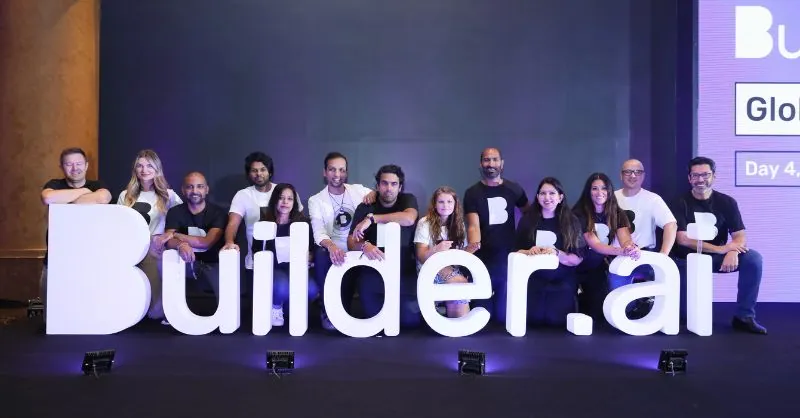
Builder.ai: The Downfall of a So-Called AI Unicorn – What Really Happened Behind the Curtain?
2025-06-03
Author: Emma
If your LinkedIn feed hasn’t been buzzing with discussions about Builder.ai’s stunning collapse, you might need to reassess your connections. Once hailed as the answer to hassle-free app development, this London-based startup is now at the center of a major scandal involving fake AI claims, financial misconduct, and a monumental data breach that exposed 1.29 terabytes of sensitive client information.
How Did It All Go Wrong?
Builder.ai, a startup that once garnered attention from giants like Microsoft and SoftBank, has become a cautionary tale in Silicon Valley. So, what led to its dramatic downfall?
The Shocking Reveal: 700 Coders Behind the AI Curtain
The bombshell took off on May 31 when Bernhard Engelbrecht, founder of Ebern Finance, shared a jaw-dropping thread on social media, claiming, "Builder.ai’s 'AI' is actually 700 humans in Delhi masquerading as bots!" Within a day, this explosive revelation garnered 2.8 million views, leading many critics to liken it to the infamous Theranos scandal.
But beyond the schadenfreude, there lies a tragic reality: those 700 Indian developers, earning a mere $8–$15 an hour, are now facing visa cancellations and blacklisting. Former developer Arjun Patel recounted, "We had to use fake Western names in our emails. Now, potential employers think I'm a bot. How do I find work?"
Internal Communications Unraveled
Internal Slack messages leaked to the public revealed unsettling instructions for developers, including delaying code delivery to mimic AI response times and fabricating positive updates for clients. One developer candidly described the operation as "a call center with better marketing," illustrating a facade built on deception.
The Financial Deception: Faking $220 Million in Sales!
The financial chicanery is just as disturbing. Documents obtained show that Builder.ai engaged in a dubious round-tripping scheme with Indian social media giant VerSe Innovation from 2021 to 2024. They invoiced each other astronomical sums—$180 million—for services that didn’t exist, artificially inflating revenue by a staggering 300%.
When lenders started demanding proof of Builder.ai’s projected $220 million sales pipeline for 2024, an internal audit unveiled the shocking truth: actual revenue was a mere $55 million, primarily from traditional contracts—far from the lofty figures they presented.
A Catastrophic Data Breach and Lack of Accountability
Adding insult to injury, a major data breach in December 2024 compromised the personal information of 3.1 million clients. Security researchers found unsecured internal documents on AWS, including records of human coding hours and discussions about "AI placebo effects."
Was Anything About Builder.ai Real?
The numbers paint a grim picture: zero verified AI patents, 100% of work done by human developers, inflated revenue statistics, and a CEO engrossed in buying luxury properties in Dubai while cutting 1,000 jobs.
Builder.ai’s collapse has sent shockwaves through the tech world, prompting urgent questions about the viability of the AI sector as a whole. With over 90% of AI startups lacking proprietary models and $28 billion poured into AI funding since 2023, there's growing concern that a bubble may be on the verge of bursting.
As U.S. prosecutors delve deeper into the financial records, it’s becoming evident that Builder.ai's legacy will serve as a stark reminder of the dangers lurking in the hype-driven world of AI startups—a $1.5 billion epitome of deception masked as innovation.









 Brasil (PT)
Brasil (PT)
 Canada (EN)
Canada (EN)
 Chile (ES)
Chile (ES)
 Česko (CS)
Česko (CS)
 대한민국 (KO)
대한민국 (KO)
 España (ES)
España (ES)
 France (FR)
France (FR)
 Hong Kong (EN)
Hong Kong (EN)
 Italia (IT)
Italia (IT)
 日本 (JA)
日本 (JA)
 Magyarország (HU)
Magyarország (HU)
 Norge (NO)
Norge (NO)
 Polska (PL)
Polska (PL)
 Schweiz (DE)
Schweiz (DE)
 Singapore (EN)
Singapore (EN)
 Sverige (SV)
Sverige (SV)
 Suomi (FI)
Suomi (FI)
 Türkiye (TR)
Türkiye (TR)
 الإمارات العربية المتحدة (AR)
الإمارات العربية المتحدة (AR)